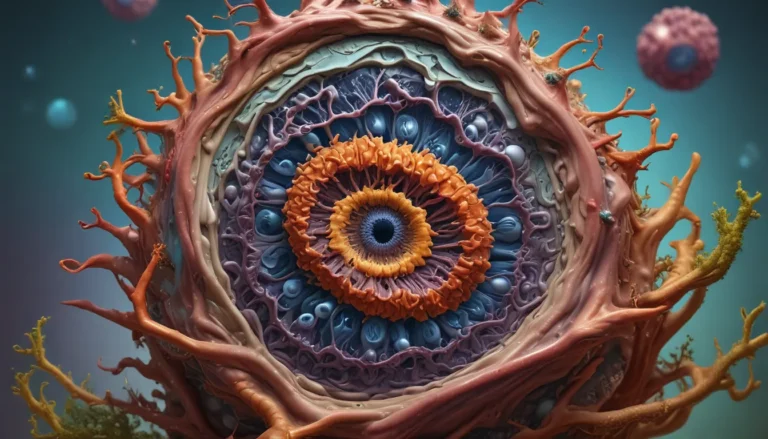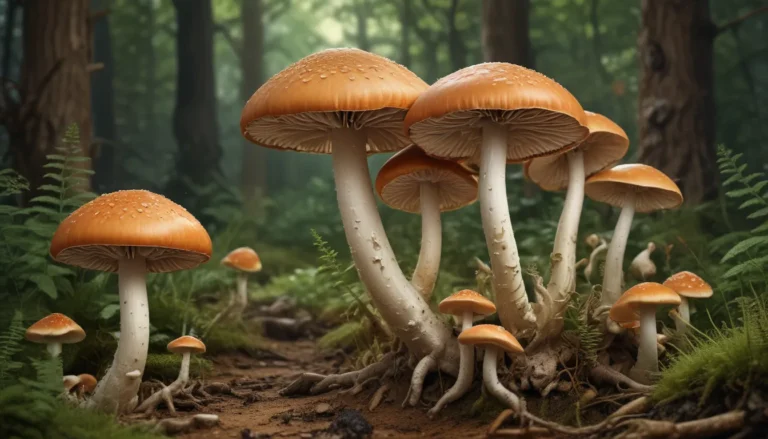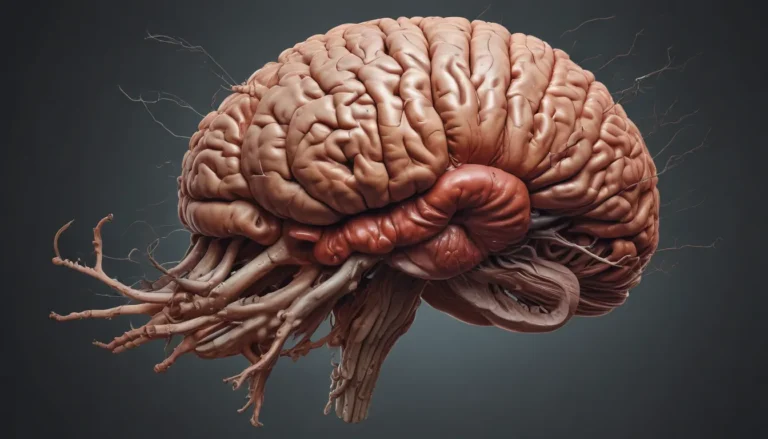A Note About Images: The images used in our articles are for illustration purposes only and may not exactly match the content. They are meant to engage readers, but the text should be relied upon for accurate information.
Have you ever stopped to ponder the intricate process of decomposition? Often associated with decaying plants and animals, decomposition is actually a fascinating natural phenomenon that plays a vital role in the ecosystem. From nutrient recycling to environmental impact, decomposition is a complex system driven by tiny organisms that deserve our attention. Join us on a journey through 14 intriguing facts about decomposition that will deepen your understanding and spark your curiosity.
Unveiling the World of Decomposition
Decomposition is more than just decay; it is a crucial part of nature’s recycling system that breaks down organic matter and returns essential nutrients to the soil for new life to flourish. Microorganisms, such as bacteria and fungi, are the unsung heroes of decomposition, driving this process and ensuring the continuous flow of nutrients within ecosystems.
The Microscopic Heroes of Decomposition
Microorganisms, including bacteria and fungi, are the powerhouse behind decomposition. These tiny organisms break down complex organic compounds into simpler forms that can be readily absorbed by other organisms or returned to the environment. Their work is essential for nutrient cycling and ecosystem health.
Return to the Earth: Nutrient Release
One of the key outcomes of decomposition is the release of essential nutrients back into the soil. Nutrients like nitrogen, phosphorus, and carbon are recycled during this process, providing vital elements for plant growth and ecosystem balance. Without decomposition, the cycle of life would come to a standstill.
Aerobic vs. Anaerobic Decomposition
Decomposition can occur in two main ways: aerobic, in the presence of oxygen, and anaerobic, in the absence of oxygen. The type of decomposition that takes place depends on environmental conditions and oxygen availability. Both processes are essential for breaking down organic matter efficiently.
Factors Influencing Decomposition Rates
The speed at which decomposition occurs can be influenced by various factors, including temperature, moisture levels, oxygen availability, and the composition of the organic material. Warmer temperatures and higher moisture content typically accelerate the decomposition process, while cold or dry conditions can slow it down.
Guardians of Health: Disease Control
Decomposition plays a crucial role in controlling the spread of diseases by breaking down pathogens and reducing their viability. This natural process helps to mitigate the harmful effects of disease-causing organisms and contributes to a healthier ecosystem overall.
Biodiversity Blooms: Creating Diverse Habitats
The decomposition of organic matter creates microhabitats that support a wide range of organisms, from insects to worms to decomposer fungi. These habitats provide shelter and food sources for a diverse array of species, enriching biodiversity and contributing to the resilience of ecosystems.
Specialists in Decay: Different Organisms, Different Roles
Various organisms specialize in different stages of decomposition, ensuring the continuous breakdown of organic matter and the efficient recycling of nutrients. Scavengers, detritivores, and decomposer fungi all play vital roles in this intricate process, each contributing to the cycle of life in their unique way.
Unveiling the Odor of Decomposition
The breakdown of organic matter by specific bacteria and fungi can lead to the release of unpleasant odors commonly associated with decomposition. These “rotten” or “putrid” smells are a byproduct of the biochemical reactions occurring during decomposition, serving as a reminder of nature’s intricate processes.
Accelerating Nature: Human-Induced Decomposition
Humans have found ways to accelerate the decomposition process for specific purposes, such as composting. By creating optimal conditions for decomposition, nutrient-rich compost can be produced rapidly, benefiting gardening, agriculture, and environmental sustainability.
Preservation Techniques: Delaying Decomposition
In some cases, the natural decomposition process can be delayed through preservation techniques. Organic matter can be preserved in certain environments or treated with substances like formaldehyde to slow down decay. Museums often use these methods to protect artifacts from deterioration.
Energy from Decay: Decomposition as a Renewable Resource
In certain instances, the decomposition of organic matter, such as in anaerobic digestion, can be harnessed as a source of renewable energy. The production of biogas through decomposition offers a sustainable energy solution for heating, electricity generation, and transportation.
Deciphering Nature’s Clues: Decomposition in Forensic Science
Forensic scientists rely on decomposition patterns to estimate the time of death in homicide cases. By studying the stages of decomposition and insect activity on a corpse, known as forensic entomology, valuable insights can be gleaned for criminal investigations, shedding light on critical details of a crime scene.
Embracing the Cycle: Decomposition as a Continuous Process
Decomposition is an ongoing cycle in nature, continuously breaking down organic matter and recycling nutrients to sustain ecosystems. It is a natural way for life to renew itself, highlighting the interconnectedness and balance of the natural world.
Conclusion: Embracing the Marvels of Decomposition
In conclusion, decomposition is a captivating and essential process that forms the backbone of the ecosystem. From nutrient recycling to disease control, this natural phenomenon affects every aspect of life on Earth. By delving into the intricacies of decomposition, we not only deepen our understanding of biology but also uncover connections that shape our world.
Discover More with Decomposition FAQs
- What is decomposition?
-
Decomposition is the natural process of breaking down organic matter into simpler substances through the action of microorganisms like bacteria and fungi.
-
Why is decomposition important?
-
Decomposition is crucial for nutrient cycling, waste elimination, soil formation, and ecosystem balance, ensuring the sustainability of life on Earth.
-
What factors influence decomposition rates?
-
Temperature, moisture, oxygen levels, presence of decomposers, and the chemical composition of organic matter all impact the speed of decomposition.
-
How long does decomposition take?
-
The duration of decomposition varies based on environmental conditions, the type of organic matter, and the presence of decomposers, ranging from weeks to years.
-
Can decomposition benefit agriculture?
-
Yes, decomposition enriches soil fertility by providing essential nutrients through the breakdown of organic matter, supporting healthy plant growth in agriculture.
-
Is decomposition useful in forensic investigations?
-
Absolutely, forensic scientists use decomposition patterns to determine the time of death and gather evidence crucial for criminal investigations, leveraging the science of forensic entomology.
-
Are all decomposers microorganisms?
- While microorganisms like bacteria and fungi are primary decomposers, larger organisms such as insects, worms, and scavengers also aid in breaking down organic matter.
Intrigued by the wonders of decomposition? Each fact uncovers a new layer of this complex process, inviting you to delve deeper into the mysteries of the natural world. Whether you’re a science enthusiast, a nature lover, or a curious mind, there’s always more to learn about the intricate dance of decomposition and its profound impact on life.
Was this content enlightening?
At Amigo Energy, we are dedicated to providing informative and engaging content that enriches your knowledge and sparks curiosity. Each fact is contributed by individuals like you, ensuring a diverse range of insights and information. Our commitment to accuracy and credibility drives us to review every submission meticulously, guaranteeing that the information we share is not just fascinating but also reliable. Trust in our dedication to quality and authenticity as you explore the wonders of the world with us.






